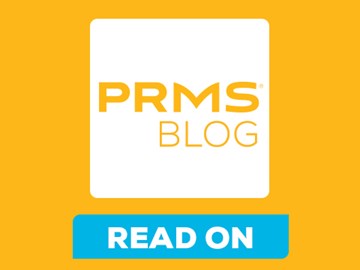Recovery of Records
Following a Disaster
Recent events in the U.S. have reminded us that no area is immune from the unfortunate effects of a disaster. Loss of records might occur in conjunction with a storm or fire or even a burst pipe in your office. In the event of a disaster, by taking the following measures you will help to ensure that confidentiality of patient records will not be breached and patient care will not suffer.
- To the extent that you are able, secure what remains of your records to avoid the possibility of a confidentiality breach. It may be that before you are even able to get to your office records are moved or lost in recovery procedures, however, you should still do what you can to prevent further breach. You will want to be able to demonstrate that you made reasonable efforts to protect patient confidentiality once you were made aware of the situation.
- Consider taking photos of the damaged area. If someone does file a claim for breach of confidentiality or if at some point you are unable to produce requested records due to their destruction, it will be helpful if you can clearly show the particular circumstances that led to the inadvertent breach or destruction of records.
- Keep copies of any insurance claims filed and newspaper clippings of the event leading to destruction. This will further lend credence to your assertions that there were forces outside of your control that led to the destruction.
Once you have secured records to the extent possible and have sufficiently recorded the damage, you must now begin the task of salvaging, if not the record itself, the information contained therein.
- Begin by ascertaining which patient records were affected. The task may be made easier if you have a separate patient list that you can access. It would also be beneficial if this list indicated the last date the patient was seen. If, by chance, a record has already been retained beyond the required statutory period, you can simply note the date of destruction and turn your attention to more current files.
- The next step is file reconstruction starting with your most active files. Whether you are recreating them on paper or entering information into an EHR, clearly note that it is a reconstruction to avoid suspicion should there be discrepancies between your new file and records that may have been previously released.
- Be candid with patients and let them know that you will be recontructing their chart. Have them complete new history forms and bring in any medications you may have prescribed. Consider contacting other providers to whom you may have sent records and/or reports. Contacts labs who will have copies of information previously sent to you.
- Consider having patients obtain a report of their medications from their pharmacy and bring it to their next visit. If you are unable to determine what medications you have been prescribing and in what dosages, consider consulting your state's prescription monitoring program.
- If records are damaged, rather than completely destroyed, consult your state licensing board to determine their requirements for maintaining damaged records if any. If, when reconstructing the chart, you are able to salvage some pages but not others, clearly note sections where information was lost.
Unfortunately disasters often cannot be prevented but by taking appropriate measures after the disaster, you can mitigate potential future harm to your practice and to your patients.
Online Courses
PRMS® clients can log into PRMS U to access a wide variety of CME and non-CME courses on many relevant topics.
HIPAA HELP
Do You Know Enough About HIPAA?
To help you learn how HIPAA affects you and your practice, The Psychiatrists' Program offers a HIPAA Help checklist to make you more familiar with these regulations.
CME SEMINARS
Our in-house risk managers develop and deliver acclaimed CME seminars throughout the country. Find one near you!
ACCESS PRMS U

PRMS® clients have access to our online educational portal at no additional cost. Access our wide variety of expert resources today!
CONTACT US TO LEARN MORE!
(800) 245-3333
TheProgram@PRMS.com




